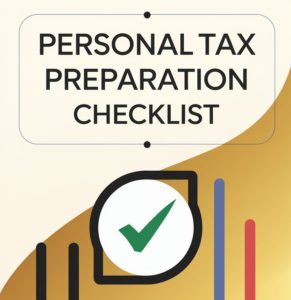If you are the victim of identity theft, then it is important to inform the IRS of your situation. This will prevent people from filing a false tax return with your name. With IRS Form 14039 – Identity Theft Affidavit, you can alert the IRS and protect yourself from tax identity theft.
THIS POST MAY CONTAIN AFFILIATE LINKS. PLEASE READ MY DISCLOSURE FOR MORE INFO. This means if you click on any of the links, I’ll receive a small commission.

What is IRS form 14039?
Each year, more than 640,000 tax payers fall victim to identity theft. In many situations, identity thieves will attempt to file fraudulent tax returns in your name. This can complicate your ability to receive your own tax return in the future.
Traditionally, the IRS will send you a written notice if your tax return is filed early. At that time, you need to take the following actions:
- Call the IRS on the number provided on the notice
- Complete form IRS Form 14039 – Identity Theft Affidavit
IRS Form 14039 – Identity Theft Affidavit will inform the IRS that you have been a victim of identity theft. This will alert the IRS and prevent them from paying the identity thief your tax rebate.
Example Scenario for Form 14039

Here is an example of someone who has fallen victim to tax identity theft:
Sharon has her identity stolen when there was a data breach at a credit card company in October. In January of that next year, the identity theft attempted to file a tax return in Sharon’s name. A month later, the IRS sent Sharon a letter confirming that they received her tax return.
Sharon, realizing that she had not filed her tax return, immediately calls the IRS on the phone number provided on the IRS letter. Afterward, Sharon files IRS Form 14039 – Identity Theft Affidavit.
Within 30 day after receiving IRS Form 14039, the IRS sends Sharon a letter telling her that they have received her affidavit. The IRS conducts an investigation of Sharon’s returns to see which years have been affected.
After the returns have been examined, the IRS will release Sharon’s tax return to her and close the case. By taking action as quickly as possible, Sharon was able to prevent further issues with her IRS tax returns.
File Your Taxes with Ease from Home Today with TurboTax!
Key Takeaways You Should Know
Here are some answers to the most frequently asked questions regarding IRS Form 14039 – Identity Theft Affidavit.

How do I get IRS form 14039?
You can get IRS form 14039 through the IRS website. You will be able to print out this form, complete it and mail it – with your tax return – back to the IRS.
How do I file IRS Identity Theft form?
You will file the IRS Identity Theft form with your tax return.
How long does it take to get IRS refund after Identity Theft?
Generally, the issue will be resolved within 120 days. However, more complex cases may take up to 180 days.

Does the IRS investigate Identity Theft?
The IRS has a team dedicated to investigating identity theft known as the IRS Tax Theft Victim Assistance department. This team will assign an employee – with experience in identity theft – to investigate your account.
This is the sequence of events that will take place during the investigation:
- Within 30 days after the IRS receives tax form 14039, the IRS will send you a notice that they have received the form.
- The IRS Tax Theft Victim Assistance department will review your tax account to see what filing years may have been affected.
- The IRS will resolve your account, release your tax return and close your case.
- Your account will be flagged for extra scrutiny to detect future fraudulent returns.
- The IRS will assign you a special number to place on your tax return. This will add an extra layer of security to your tax returns.
What are IRS phishing scams?
One way that identity thieves will try to steal your information are through “phishing” scams. This is a method where the identity thief will email you, pretending to be someone with the IRS.
If you open these types of e-mail, a virus can be automatically released into your hard drive. That can allow access to identity theives.
Note that the IRS will never contact you electronically.
If you get an email from someone purporting to be from the IRS, do not open it. Instead, forward the email to phishing@irs.gov.

Should I also contact my state?
If you file a tax return in your state – or any other state – you should contact that state’s revenue office to report that your identity has been stolen.
10 Helpful Tips to Remember
Identity theft can happen to anyone. Here are some signs to look for to see if you have become a victim of identity theft.
- The IRS sends you a letter inquiring about a suspicious tax return.
- Your tax return e-file is not accepted because of a duplicate Social Security number.
- You receive a tax transcript that you did not request.
- The IRS tells you that your online account has been accessed or disabled when you didn’t authorize any action.
- You discover withdrawals on your bank account that you didn’t authorize.
- You’re not getting your bills or other pieces of mail.
- You get calls from debt collectors regarding accounts that you never opened.
- You get bills for medical services that were not provided to you.
- Your health plan tells you that you have reached your benefits limit when you haven’t filed many medical claims in the past 12 months.
- You receive a letter or an e-mail notice that your information was compromised by a data breach.
Estimate Your Tax Refund with this FREE Calculator!
Keeping Yourself Safe from Identity Theft
No one is immune to Identity theft. Be sure to look for warning signs and take action and file IRS form 14039 if you believe someone has stolen your identity.
By taking action as early as possible, the IRS can resolve your issue, protect your IRS account and ensure that you get your tax return.

For more money-saving tips and guides, subscribe to the weekly newsletter!
I hope this helps your situation.
If you enjoyed this article, then you’ll love these:
- Best Rules for Claiming a Dependent on Your Tax Return
- When and How to Claim Tips on Your Tax Return
- Do I Need to File a Tax Return?
- How to Choose the Best Filing Status
- Top 12 Things You Must Know About the New Tax Law
Get started on your taxes early TODAY!
Until the next money adventure, take care!
Handy

Disclaimer Statement: All data and information provided on this site is for informational purposes only. The Handy Tax Guy makes no absolute representation of the correctness, mistakes, omissions, delays, appropriateness, or legitimacy of any information on this site. **Note: Each client circumstance will vary on a case-by-case basis**

